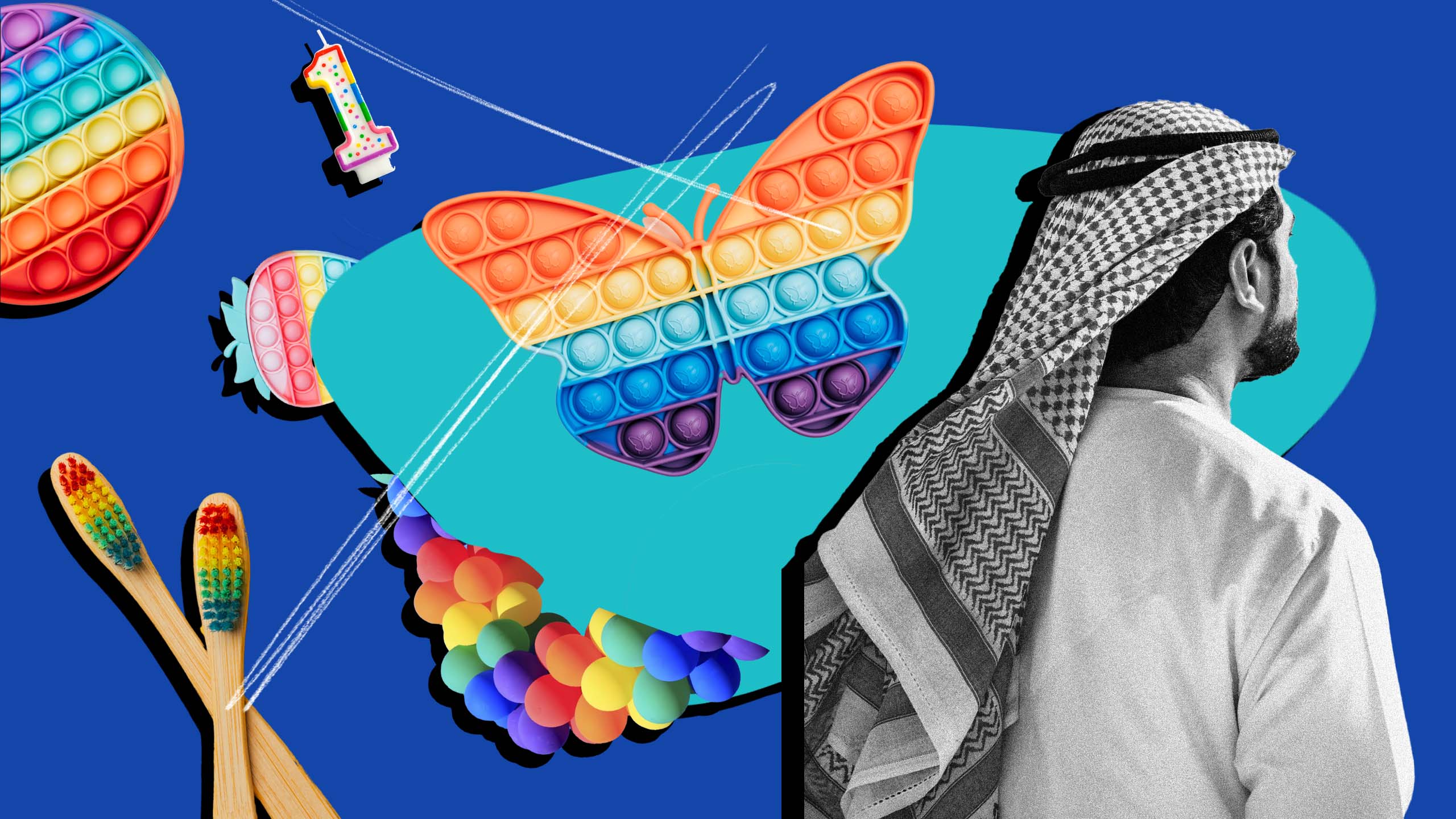Authorities in Saudi Arabia have been rounding up rainbow-coloured toys in an attempt to curb what they believe is LGBTQ+ influence on children.
In a Tuesday news broadcast aired on the Arabic-language news channel Al-Ekhbariya, officials with Saudi Arabia’s commerce ministry removed items like pencil cases, T-shirts, hats and hair clips from stores in Riyadh, the Middle Eastern country’s capital. During the raid, one government representative said the items “contradict the Islamic faith and public morals, and promote homosexual colours targeting the younger generation,” as the BBC originally reported.
A tweet from the commerce ministry accompanying the broadcast claimed the offending paraphernalia “contain symbols and signs calling for deviation and contradicting common sense.” Any business caught selling rainbow items could face prosecution, according to the Saudi government.
Saudi Arabia already has some of the world’s most draconian laws targeting the LGBTQ+ community. Individuals accused of same-sex relations face a range of possible punishments under its Shariah laws, including fines, public beatings, torture, life imprisonment and execution. Trans people who dress in accordance with their gender identity are also subjected to criminal sanctions.
While many countries that criminalize the existence of LGBTQ+ people do not enforce their legal codes, this is not the case in Saudi Arabia. Last year alone, five individuals were reportedly arrested for “crossdressing,” and a Yemeni blogger was imprisoned and ultimately deported for expressing support for LGBTQ+ rights.
The criminalization of LGBTQ+ identities has also extended to rainbows and other displays viewed as expressing support for equality. In 2016, a Saudi doctor was allegedly questioned by the country’s religious police after he hung a Pride flag outside his home. The man was eventually freed after he reportedly told authorities that he was unaware of the banner’s association with the LGBTQ+ community and asked to remove it.
Although it’s unclear how many shops have been targeted in the recent raids, Saudi Arabia’s anti-LGBTQ+ crackdown is unlikely to stop there. Police in the country have also floated instituting the death penalty for individuals who “solicit homosexual acts on social media,” although it’s unclear if that mandate has been imposed.
Saudi Arabia has recently made headlines for censoring films with LGBTQ+ content. The country has banned films like Lightyear, Everything Everywhere All at Once, Eternals and West Side Story for including references to the LGBTQ+ community, some of which comprise just seconds of screen time. Earlier this year, Disney refused a request from Saudi censors to cut a scene in Doctor Strange in the Multiverse of Madness, in which a character references her “two moms,” and the film was subsequently pulled from theatres.
Neighbouring Qatar has also begun cracking down on LGBTQ+ expression, mounting a similar campaign in December to confiscate rainbow-coloured toys from stores. The country has come under fire for its anti-LGBTQ+ codes—which outlaw homosexuality—ahead of Qatar hosting the World Cup in November. Qatari officials have signalled that rainbow flags could be confiscated during the games to “protect” LGBTQ+ fans.


 Why you can trust Xtra
Why you can trust Xtra


